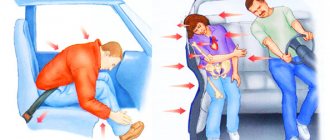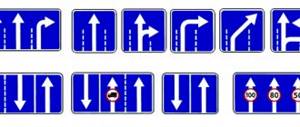A deregistered car - can it be bought and how to register it?
Buying a deregistered car
In 2021, a car can be deregistered from the State Traffic Safety Inspectorate (registration of the vehicle with the inspectorate can be terminated). There are various reasons for such actions, and all of this affects what problems you will encounter when registering or registering a purchased car with the traffic police. Therefore, the answer to the question of whether it is possible to buy such a car depends on a number of circumstances, which we will list below.
On registration actions related to the alienation of vehicles
In connection with the requests from citizens received by the Ministry of Social Protection of the Population of the Territory on the issue of obtaining permission to alienate cars issued by the social protection authorities, we inform you as follows.
1. When heirs apply for permission to deregister a car issued to a disabled person by the social protection authorities in connection with his death:
In accordance with Article 1184 of the Civil Code of the Russian Federation, means of transport and other property provided by the state or municipality on preferential terms to the testator in connection with his disability or other similar circumstances are included in the inheritance and are inherited on a general basis.
According to Decree of the Council of Ministers - Government of the Russian Federation dated February 22, 1993 No. 156, passenger cars purchased by disabled people or received by them with the cost set off, in the event of their death, are inherited in the manner established by the legislation of the Russian Federation, that is, in accordance with the above norms of the Civil Code Russian Federation.
Based on the above-mentioned norms of legislation, when territorial divisions of the state road safety department of the Internal Affairs Directorate in the Khabarovsk Territory carry out registration actions related to the inheritance of vehicles, decisions of social protection authorities on changes in ownership (permission to deregister) a vehicle, received by inheritance is not required.
2. When alienating cars issued to disabled people on the basis of government contracts concluded by the Federal Agency for Health and Social Development and the Ministry of Health and Social Development of the Russian Federation (which is noted in the technical passport of the vehicle):
Order of the Ministry of Health and Social Development of the Russian Federation No. 1101n, Ministry of Internal Affairs of the Russian Federation No. 849 dated December 13, 2010 approved the Procedure for registering the ownership of disabled people with passenger cars issued to them in accordance with medical indications free of charge for gratuitous use at the expense of the federal budget on the basis of government contracts concluded by the Federal Agency for Health and Social Development social development and the Ministry of Health and Social Development of the Russian Federation (hereinafter referred to as the Procedure).
According to the Procedure, changes in registration data are made in relation to vehicles issued to disabled people on the basis of government contracts and additional agreements to them concluded by the Federal Agency for Health and Social Development and the Ministry of Health and Social Development of the Russian Federation.
Changes in registration data for vehicles are carried out by departments of the State Traffic Inspectorate at the place of registration of the vehicle (hereinafter - registration departments) on an application basis as disabled people or their legal representatives (hereinafter - vehicle owners) apply to the registration departments.
Registration departments, when contacted by vehicle owners, carry out registration actions without taking into account the prohibitions and restrictions on changing ownership contained in the vehicle passport.
In this case, the decision of the social protection authorities on changing the ownership (permission to deregister) of the vehicle is not required.
Department for Rehabilitation and Social Integration of Disabled People of the Department of Social Support of the Population
How to check if a car is registered?
The most reliable way is the traffic police website, which, unfortunately, periodically freezes or refuses to provide information. But alas, all other services and sites take information from here.
To find out whether a car has been deregistered by the State Traffic Inspectorate, go to the vehicle verification service on the official website of the State Traffic Safety Inspectorate. You will need the car's VIN. It must be entered in the very first field, click below “Request verification” in the registration history block and enter the numbers from the picture.
Based on the result, you need to look at the last date of the vehicle ownership periods. If there is no text fragment “to date” in the last line, this means that the car has been deregistered.
- Here is an example of a car deregistered from the traffic police:
Please note that the date highlighted in the red square is December 15, 2016 – this is the date of termination of car registration. - But everything is fine with this car, because it is currently, April 22, 2021, owned by an individual:
What problems can await if the car is deregistered?
So, as we mentioned above, possible problems can be expected depending on the grounds - on the reason for which the car was deregistered by the traffic police. There may be several such reasons:
- if the car was sold before, and the new owner did not register it in his name, then the seller could terminate the registration on the 11th day after the date that he and the buyer indicated in the purchase and sale agreement,
- loss of a vehicle,
- theft or hijacking,
- disposal,
- export outside the country for sale,
- if the traffic police itself stopped registration due to the presence of grounds for this (for example, a change in the design of the car, tinting, etc.),
- if the car in an insured event is recognized as “total” - that is, the insurance company considered repairs unprofitable and decided to pay the full cost of the car, and also if the vehicle was replaced with another according to the law on the protection of consumer rights.
Unfortunately, it is impossible to reliably find out for which of these reasons the registration of a car was stopped for 2021. But below we will give the most correct life hack for buying a car that has been deregistered. But you will find the following information useful and should ask the seller the following questions if you are considering purchasing such a car:
- what specific documents are there for this car: title,
- registration certificate,
- purchase and sale agreement(s),
Let's look at the most common reasons for deregistration of a car and find out whether it will be possible to register such a car with the traffic police after purchase in 2021.
If registration is terminated due to the sale of the car
Signs:
- car with license plates,
- there are all documents for the car (there must also be at least one purchase and sale agreement),
- original PTS with no special marks
In this case, the car must have all the documents and license plates listed above, and this is the simplest and most problem-free case. Such a vehicle must be registered with the traffic police without any problems. But there is an important subtlety - you will need the entire chain of purchase and sale agreements.
The fact is that this situation occurs when someone bought a car, did not re-register it in his name with the traffic police, and the previous owner stopped registering it. Thus, the car remained unregistered. And in order to fix this, you need to register it accordingly after your purchase. But the traffic police will ask for confirmation of ownership of the car, which is the purchase and sale agreement. And, since there is no information about the previous owner in the traffic police, because he did not re-register the car in his name, then you need the entire chain of contracts from the person who has the car in the State Traffic Inspectorate database.
Purchase or alienation of a car
A car these days is no longer a luxury item, but an urgent necessity. Many people dream of buying their own car, even taking out loans to purchase a vehicle. However, not everyone knows about the enormous legal intricacies when buying a vehicle. In this article we will tell you what you should pay attention to when buying your vehicle.
Establishing the proper owner Studying the title documents Checking the technical condition of the vehicle Checking the encumbrances of the vehicle Consent of the spouse to the transaction Bankruptcy of the seller Concluding the transaction
Establishing the proper owner First, you need to establish who the owner of the vehicle is.
The buyer, in order to find out such information, should ask the seller on the basis of which he purchased such a car.
Typically, such a document is a purchase and sale agreement. After submitting the purchase and sale agreement, you must ask the seller for identification documents to compare the data.
If the owner is represented by another person acting on the basis of a power of attorney, it is necessary to request such a power of attorney and carefully study it for the powers granted. You should also check the validity period of the issued power of attorney.
To check the power of attorney, there is a special website of the notary chamber, where you can enter data and clarify the information. We leave a link to the website https://reestr-dover.ru/.
It should also be noted that if you buy a vehicle at a car dealership, then the seller of such a car is a legal entity.
If you purchase a car from a showroom, you must request an extract from the Unified State Register of Legal Entities. Such an extract can be obtained from the tax authority website. We leave a link to the site https://egrul.nalog.ru/index.html.
After receiving the extract, you need to compare the name of the legal entity and the information about the director.
If negotiations are conducted by a person acting on the basis of a power of attorney, it is necessary to request such a power of attorney.
Once you have identified the proper owner or authorized person to negotiate with, you should proceed to request title documents for the vehicle you are purchasing.
Study of title documents
First of all, you need to obtain from the seller the document on the basis of which he purchased the vehicle.
In addition, when purchasing a car, you should obtain the original technical equipment passport from the seller.
If for some reason the seller provides you with only a duplicate of the technical equipment passport, you must request a certified copy of the original PTS.
The provision by the seller of a duplicate passport of the technical device should alert the buyer.
As a rule, in such situations, the seller tries to hide some information from the buyer, for example, the presence of a deposit on the car.
In addition, it is required to obtain a diagnostic card from the seller, which contains information about the suitability of the vehicle and the technical inspections carried out.
We do not recommend signing a car purchase and sale agreement without reading these documents.
Such a list of documents should be requested both from the buyer - an individual, and when purchasing a car at a car dealership.
Checking the technical condition of the vehicle If you purchase a car from a private person, we recommend that you contact a specialized salon to check the technical condition of the purchased vehicle.
Many sellers use various tricks and try to hide the shortcomings of the vehicle they are selling, for example, they change the mileage of the car down.
Checking the vehicle in a specialized salon will allow you to see hidden defects: whether the body was repaired, any parts were changed, whether the car was painted.
It is extremely difficult to establish such nuances by independently inspecting the car. To confirm such circumstances, specialized equipment is required.
As a general rule, the buyer pays for a technical condition check at a car dealership.
In addition, you can clarify information about the declared mileage of the car from specialists at the car dealership.
In a situation where a car is purchased at a car dealership, information about the mileage of the car is contained in the diagnostic card.
Checking the encumbrances of the vehicle The purchased vehicle must be checked for encumbrances of third parties.
You should check the VIN number of the car on the traffic police website to see if there are any fines. We leave the link for convenience. https://traffic police.rf/check/auto
Also, the specified vehicle number must be checked for liens. We also leave the link https://www.reestr-zalogov.ru/search
Consent of the business owner's spouse to the transaction. Everything acquired during marriage is the joint property of the spouses.
When purchasing a car from an individual, the buyer must request the consent of the seller’s spouse.
In the absence of your spouse's consent, your agreement may be contested and your property may be taken away.
Bankruptcy of the seller An important point that is also worth paying attention to is the bankruptcy of the seller. If the seller is declared bankrupt, your transaction may be challenged and the property returned.
To avoid such a situation, it is necessary to obtain a certificate from the seller stating that he is not bankrupt. Such a certificate can be written in any form.
You also need to go to the website of the arbitration court and make sure that the seller is not in bankruptcy.
Such recommendations are also relevant for transactions with a legal entity.
Concluding a deal All the terms of the deal should be spelled out in detail in the contract itself.
The car should be described in as much detail as possible, specifying the characteristics of the object, color, VIN number, car make, horsepower and other characteristics.
It is worth indicating in a separate clause in the contract that the seller assures the buyer that he is not in a state of bankruptcy, all taxes have been paid, and also stipulate liability for failure to fulfill the contract.
It is important to indicate in the contract that the seller assures the buyer that the property being purchased is not pledged and has no encumbrances from third parties.
If after the purchase it turns out that the property was mortgaged, you can recover damages from the seller in court.
When purchasing a car from a private person, before signing the contract, we recommend that you and the seller go to the traffic police to verify engine numbers and ensure there are no fines.
There are situations when, when registering a vehicle for a new owner, traffic police officers find out about unpaid fines, and questions arise regarding the seller’s signature.
For complete security of the transaction, we advise you to transfer funds by bank transfer after registering the vehicle with the traffic police.
All these nuances must be taken into account when purchasing a vehicle. These recommendations will allow you to purchase a quality car, save money and subsequently avoid legal disputes.
Life hack: how to protect yourself when buying a deregistered car?
It's quite simple. If the slightest suspicion has crept in that the car is legally clean, and the seller is disingenuous about the reasons for deregistration, then offer him to pay for the purchase and sale transaction only after a joint visit to the traffic police and only if the car is successfully registered in your name.
This is done very simply:
- discuss the cost of the car, inspect it - all standard procedures before buying a car,
- you enter into a purchase and sale agreement, where in a separate clause you specify the presence of an annex - an act of acceptance and transfer of the car and funds, acceptance and transfer is carried out after the car is registered to the buyer in the traffic police,
- sign the agreement, but do not sign this act before registration,
- In case of successful registration, you sign the document, give the money, and receive a set of keys from the seller.
We discussed this issue in more detail in our special article on buying a used car.
There is a significant disadvantage to this method of safely purchasing a deregistered car - not every seller will agree to such a scheme, because it carries a risk for him too. Moreover, the seller will never agree if the car’s registration history is not clean.
But remember that it is better to refuse a dubious deal and regret the missed opportunity than to regret the money paid and the inability to use the car, because, in fact, there are many opportunities, and large amounts of money accumulated or, even worse, borrowed - not always!
Source
Grounds for the procedure (in case of voluntary transfer or confiscation)
The grounds for alienation of a car may be as follows:
- The purchase and sale agreement is a voluntary alienation with the receipt of compensation.
- A gift agreement, when the owner gives a car to a relative or other person (individual or legal entity) without receiving remuneration. In this case we are also talking about voluntary alienation.
- An exchange when the owner transfers a car to another person in exchange for another material benefit (also voluntary alienation).
- Forced alienation. Does not require the owner's consent. In this case, the car becomes the property of a public or private institution due to debt obligations from its owner or the discovery of illegal sources of income, which became the basis for the purchase of the object.
Reasons for prohibiting the termination of property rights and procedures in such a situation
The imposition of a ban on registration actions usually occurs after repeated notifications to the owner of the presence of reasons that may provoke this punishment. If the reason is not eliminated, the executive authority that recorded the violation imposes a ban. The reasons that lead to this may be the following:
- Having debts.
- Submitting a car theft report from the owner.
- Property disputes regarding a car (for example, during divorce proceedings).
- Illegal actions when transporting cars across the border.
- Defects in the vehicle that have caused problems with the fastening of the license plates and damage to the area where they are applied.
- Alienation among minors.
When imposing a ban, the sequence of actions should be as follows:
- We need to determine the cause. If you do not know it, contact the MREO and get a copy of the certificate of existence of grounds.
- Study the text of the resolution and determine whether a violation actually occurs. If you believe that the ban is unlawful, you need to contact a lawyer.
- It is necessary to eliminate the reason for the ban: pay the debt, eliminate defects, and so on, and also save the document that confirms this.
- The document is submitted to the department that imposed the restriction on registration.
- Department employees issue a certificate that must be submitted to the MREO. The fact of lifting the restriction must be registered with the MREO.
Is car recycling covered by this procedure?
Disposal is not alienation, since it necessarily involves the transfer of ownership in favor of another person.
Is it possible to prohibit a spouse from alienating a car and how to do this?
In accordance with Art. 35 of the Family Code of the Russian Federation, ownership, use and disposal of property that is the common property of spouses is carried out by their mutual consent . When one spouse does certain things, the other spouse is presumed to consent to it. If the second spouse did not give consent, the transaction may be declared invalid in court.
In practice, it is quite difficult to track how spouses dispose of movable property. The solution may be for the court to seize the car until the court makes a decision. Then the spouse will not be able to alienate the car until the arrest is lifted by the traffic police.
However, the issuance of a ruling on arrest is possible only when the demand for divorce includes requirements regarding the division of property that was jointly acquired.
How to stop the process and in what cases is this possible?
In accordance with Article 80 N 229-FZ (as amended on December 2, 2019) “On Enforcement Proceedings,” alienation can be stopped if the regulatory authority decides to seize the property. Then it is sent to the taxpayer with a request to temporarily stop the alienation. Restrictions on carrying out registration actions with a car may be imposed:
- ships;
- investigative and customs authorities;
- social protection authorities.
- Courts resort to this measure when a dispute arises regarding the ownership or division of a car. This is done to ensure that the car is not sold until the court decision is made. The restriction can be used in the case of pledging a car as security for a property claim.
- If there is a court decision, the bailiff may impose a ban on the collection of debt from the owner, incl. for alimony.
- Customs authorities can stop the alienation if they suspect violations of the customs clearance process of a car that was brought from abroad.
- Social protection authorities impose restrictions in favor of minors. Bans may also be imposed by the traffic police search departments.
Thus, the alienation of a car is the termination of ownership of it. After alienation, the car receives another owner. The basis for this may be the sale, donation, exchange of property.
Source
Alienation of a vehicle
Most often, the alienation of vehicles is carried out on the basis of a purchase and sale agreement or a gift agreement.
To conclude a contract of sale or donation of a vehicle, as a rule, it is necessary to present to the notary the passports of the parties to the transaction and documents confirming the owner’s rights to the vehicle (registration certificate, vehicle passport, etc.), and also indicate the value of the alienated vehicle.
Ownership of the vehicle passes to the buyer from the moment this vehicle is transferred to him (and not from the moment the vehicle is registered with the buyer in the MREO). At the same time, the risk of accidental death or accidental damage to the vehicle passes to the purchaser.
If the acquirer lives in the same region in which the alienated vehicle is registered, then after the contract is notarized, he can independently apply to any MREO of this region to register the vehicle in his name. In this case, the seller (donor) does not need to deregister the vehicle. In this case, you should make sure that the previous owner puts his signature in the appropriate column of the vehicle passport.
If, after concluding the contract, the vehicle “moves” to another region, then it must first be deregistered.
If the alienated vehicle was originally purchased on credit and at the time of concluding the agreement is pledged by the bank, then in order to alienate it it is necessary to first obtain the written consent of the bank.
It should be taken into account that the issuance of a power of attorney for the management and disposal of a vehicle (without drawing up an alienation agreement) does not entail the transfer of ownership of the vehicle. In this case, the previous owner of the vehicle remains the owner, who has the right at any time to cancel the power of attorney issued by him and demand the return of the vehicle to him. At the same time, the owner of the vehicle, who transferred this vehicle to another person on the basis of a power of attorney, retains all the duties and the entire scope of responsibility of the owner, including the obligation to pay taxes, liability for damage caused by the owner of a source of increased danger, until the moment when the new owner will register this vehicle in his name with the MREO.
If you have not found the answer to your question on our website, then you can contact our notary office.
We will be happy to provide you with detailed information.











